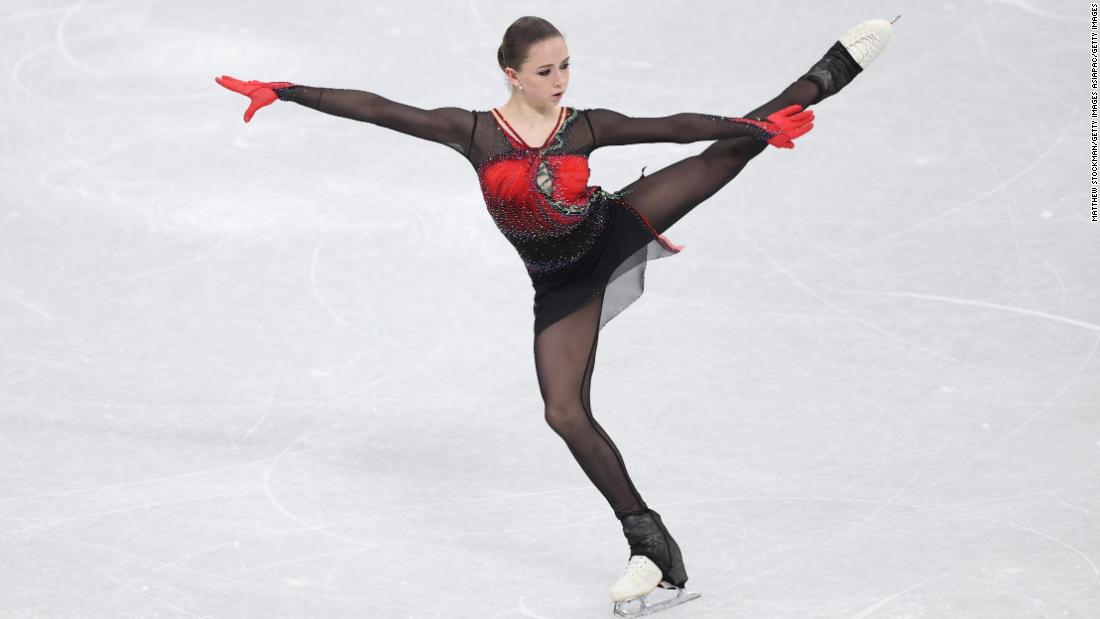The International Olympic Committee (IOC), International Skating Union (ISU) and the World Anti-Doping Agency (WADA) had appealed a decision by Russia’s Anti-Doping Agency’s (RUSADA) to lift a provisional suspension imposed on Valieva when news of the test came to light.
CAS said in a statement it had decided Valieva, 15, should be allowed to compete due to “exceptional circumstances,” including specific provisions linked to her status as a “protected person” under the World Anti-Doping Code, because she is a minor.
The clause allows “specific provisions for different standards of evidence and for lower sanctions.”
The CAS also noted Valieva did not test positive during the Winter Olympics. In making the decision the panel considered “fundamental principles of fairness, proportionality, irreparable harm,” the statement said.
It concluded “that preventing the athlete from competing at the Olympic Games would cause her irreparable harm in these circumstances.”
The decision clears the 15-year old to compete in the short program of the women’s singles competition on Tuesday. She is the favorite for the gold for women’s singles.
As a minor, Valieva is not the only person of interest in the case. The World Anti-Doping Agency (WADA) told CNN on Sunday the agency will investigate Valieva’s entourage.
“When a minor is involved, there is a requirement in the World Anti-Doping Code to investigate the entourage,” WADA said in a statement. “RUSADA (Russian Anti-Doping Agency) already indicated it had started that. We will ask our independent Intelligence and Investigations Dept to look into it as well.”
The skater was already able to compete in the Games because the failed test only came to light after she helped the Russian Olympic Committee (ROC) win gold in the figure skating team event on Monday, February 7.
The CAS ruling only determined whether the figure skater can compete in Beijing, leaving the issue of the teams event gold medal to be decided at a later date, International Olympic Committee (IOC) spokesperson Mark Adams told reporters earlier in the day Monday.
“(The medals) will not be sorted out by this decision. That will probably not be sorted out during this Games,” Adams told reporters.
Addressing Valieva’s future prior to the announcement of the CAS decision, Adams said that the case against her will continue because it does not confirm or refute the doping charge and there will be an “on-going procedure.”
Adams also confirmed to CNN that if Valieva wins a place on the podium on Tuesday, it’s likely a medal ceremony will go ahead as planned, but that the medal could still be revoked at a later date.
How the controversy unfolded
Valieva returned the positive test during the Russian Figure Skating Championships in Saint Petersburg on December 25.
But the results weren’t reported by a Swedish laboratory until February 8 — one day after the ROC team won gold in the event in Beijing, according to the International Testing Agency (ITA).
Valieva was immediately given a provisional suspension by RUSADA, which automatically prohibits athletes from participating in all sports.
The figure skater challenged the suspension on February 9 and, at a hearing that same day, RUSADA lifted the provisional ban — allowing her to continue competing at the Olympics, according to the ITA.
Responding to the controversy, the ROC on Friday said Valieva had “repeatedly passed doping tests” while already in Beijing, adding that it is taking measures to keep Valieva’s “honestly won” gold.
“The doping test of an athlete who tested positive does not apply to the period of the Olympic Games. At the same time, the athlete repeatedly passed doping tests before and after December 25, 2021, including while already in Beijing during the figure skating tournament. All the results are negative,” the ROC statement said.
Separately, Kremlin spokesman Dmitry Peskov said Friday there was a “misunderstanding” over Valieva’s positive test as he offered full support to the figure skater.
On Tuesday, Valieva plans to skate to the music “In Memoriam” by Kirill Richter and attempt a triple axel as well as a triple flip in her program. Last week, she became the first woman to land a quadruple axel at the Olympics — leaving fans clamoring for more.
CNN’s Selina Wang, Hannah Ritchie, Wayne Sterling, George Ramsay, Duarte Mendonca and Uliana Pavlova contributed reporting.
